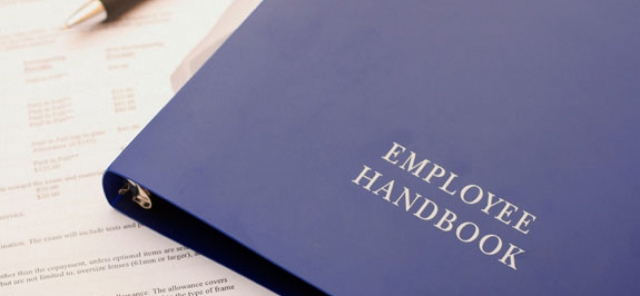Incorrectly Worded Workplace Policies can be Detrimental

By Your HR on Tap
After so long in the industry, it continues to surprise me how many businesses either don’t have the proper policies and procedures in place or fail to write them clearly. Incorrectly worded policies and procedures can actually be more damaging than having nothing at all, because at least if you have nothing written, the law falls back to the Fair Workplace Policy.
What is a Workplace Policy?
The policy is a guideline as to how the business deals with everything from day-to-day operational problems to legislation, regulations and codes of practice. The procedure is a documentation of the consistent and repeatable steps followed to achieve the desired end result.
Who Needs Workplace Policies and Procedures?
You might think that just because you are a small business, and everyone knows their job, that there is no need for you to implement anything this formal. That’s exactly where you’d be wrong. Small businesses require Workplace Policies just as much as the large industries do. When you’re employing family and friends, it’s even more important to have these to fall back on, enabling you to protect your investment.
Not only does having policies in place by telling help your employees know exactly what is expected of them and where they stand, it allows you as a business owner to defend yourself against any legal claims put forward by an employee.
Well-written workplace policies:
- are consistent with the values of the organisation and employment legislation
- demonstrate that the organisation is being operated in an efficient and businesslike manner
- ensure uniformity and consistency in decision-making and operational procedures
- save time when a new problem can be handled quickly and effectively through an existing policy
- foster stability and continuity
- maintain the direction of the organisation even during periods of change
- provide the framework for business planning
- assist in assessing performance and establishing accountability
- clarify functions and responsibilities.
What Policies Should I Include?
That is most definitely going to depend on the type of business you have, and it may be a question you’d like to ring and talk to one of our HR experts about. You should also not be worried about having heaps of policies either, just a set few to cover the important things. Having said that, here are a few that should be included in every business model. Code of Conduct sets the standards for workplace behaviour including issues such as personal and professional responsibilities and accountabilities in dealing with staff, colleagues and customers. You may also like to include standards for dress, grooming, and general appearance, keeping in mind you cannot go against the Fair Work Policy. Disciplinary, Drug & Alcohol, Leave, Discrimination, Bullying, and Harassment are just a few more you should consider covering.
Creating your Policies
To begin you need to clearly state what is the expected behaviour under the particular policy, following up with the possible consequences for any breaches of this policy. Consequences may include an informal warning followed by a formal warning or termination of employment.
Be clear about who the policy applies to. For example, does it only apply to your staff or to contractors and sub-contractors engaged to perform work on business premises?
Be explicit. The policies and consequences need to be clear and precise so there is no misinterpretation. If your staff have any difficulty with the English language, then consider having it translated. You might like to include examples to illustrate problem areas or unacceptable types of behaviours making it easier to understand.
Keep in mind there needs to be some flexibility in the policy. For example, if you have a policy relating to punctuality, you may need to include a procedure outlining what to do if the employee is going to be late.
The best option when developing new policies is to involve your staff to promote awareness, understanding, ownership as well as compliance. Involving your staff during the initial planning stages will help to determine how and when the policies might apply, including possible scenarios.
Implementing your Policies
Once you have created your policies, be sure to supply them to all new staff, as well as making them easily available to all your current staff. You might find that the lunchroom noticeboard is the best place for everyone to access the documents without feeling like they are being watched.
Be consistent with the implementation and disciplinary actions on all your policies, making sure that any breach of a policy is dealt with promptly and according to the procedures set out in the policy.






